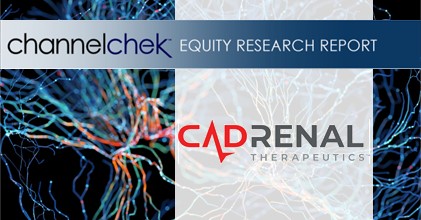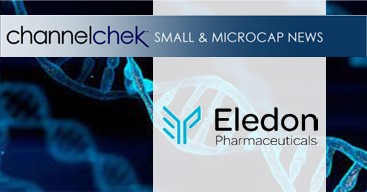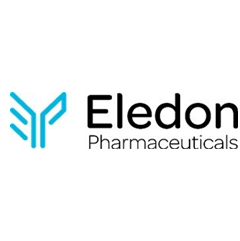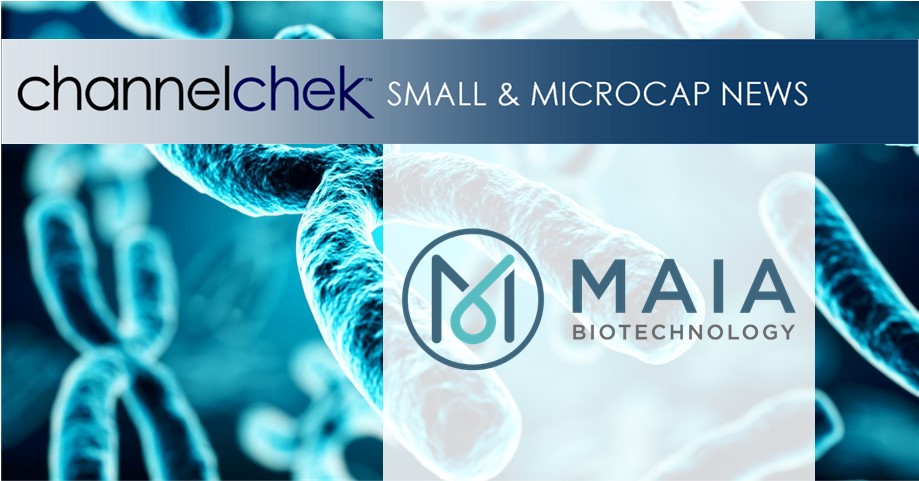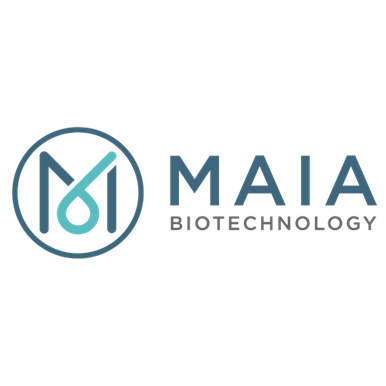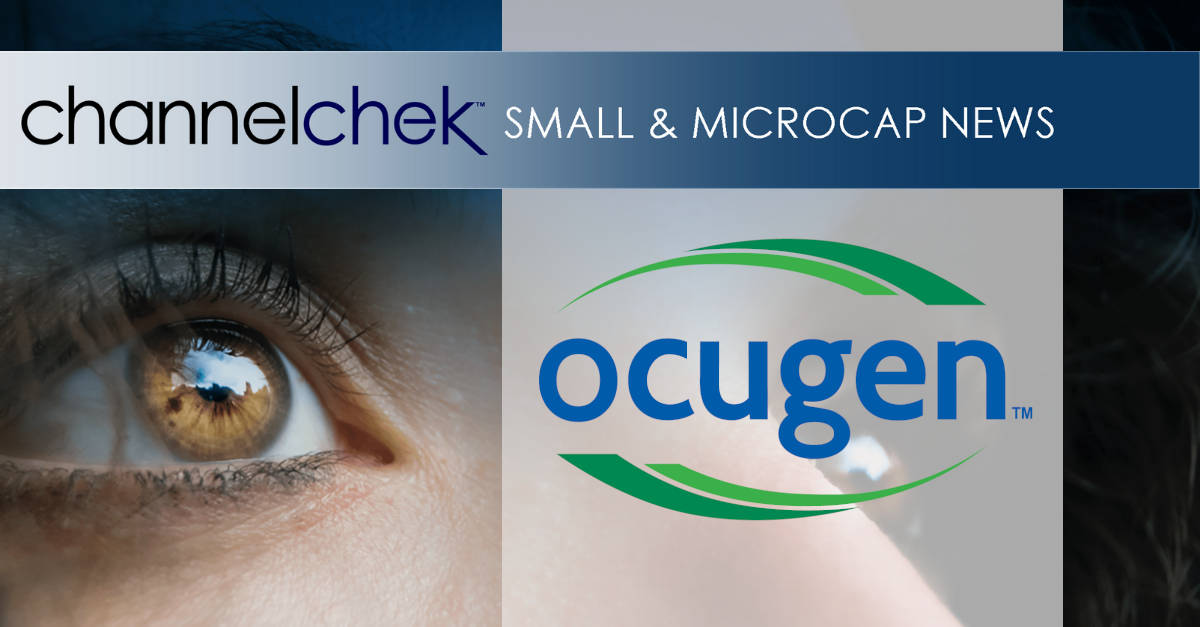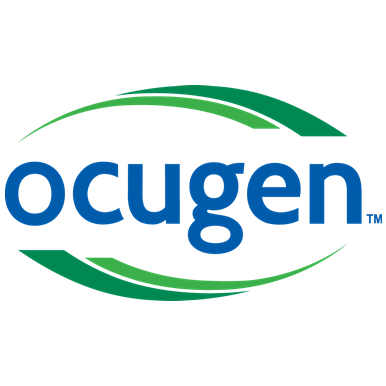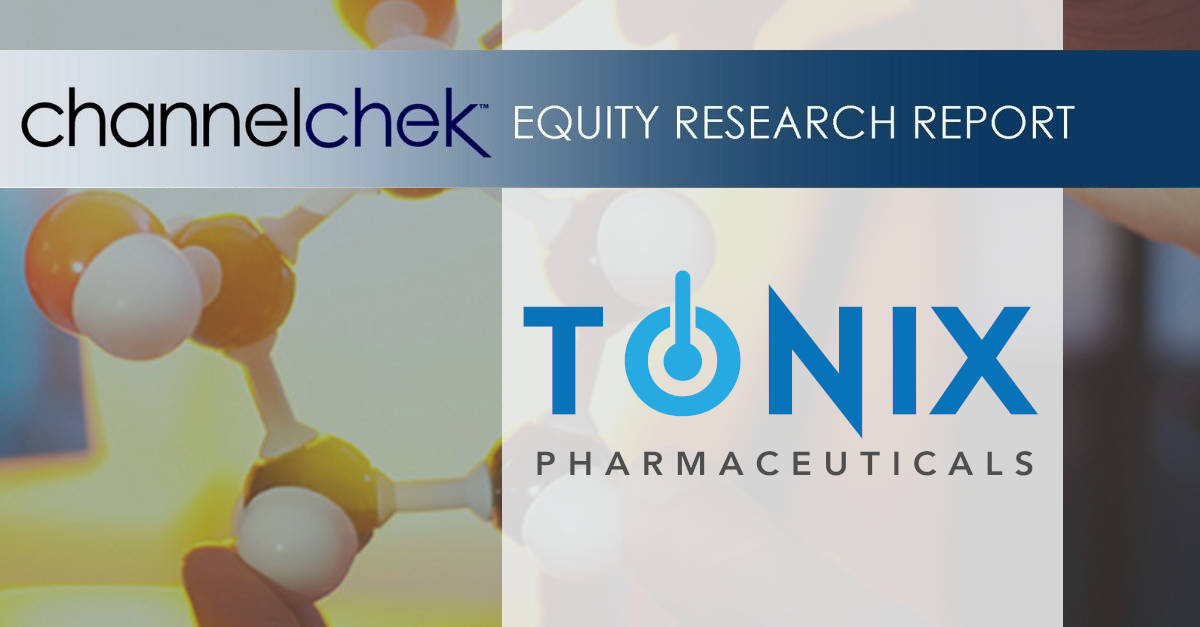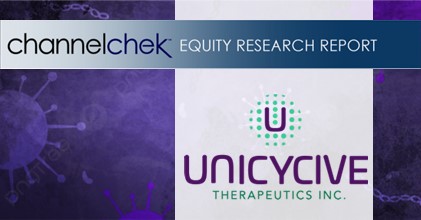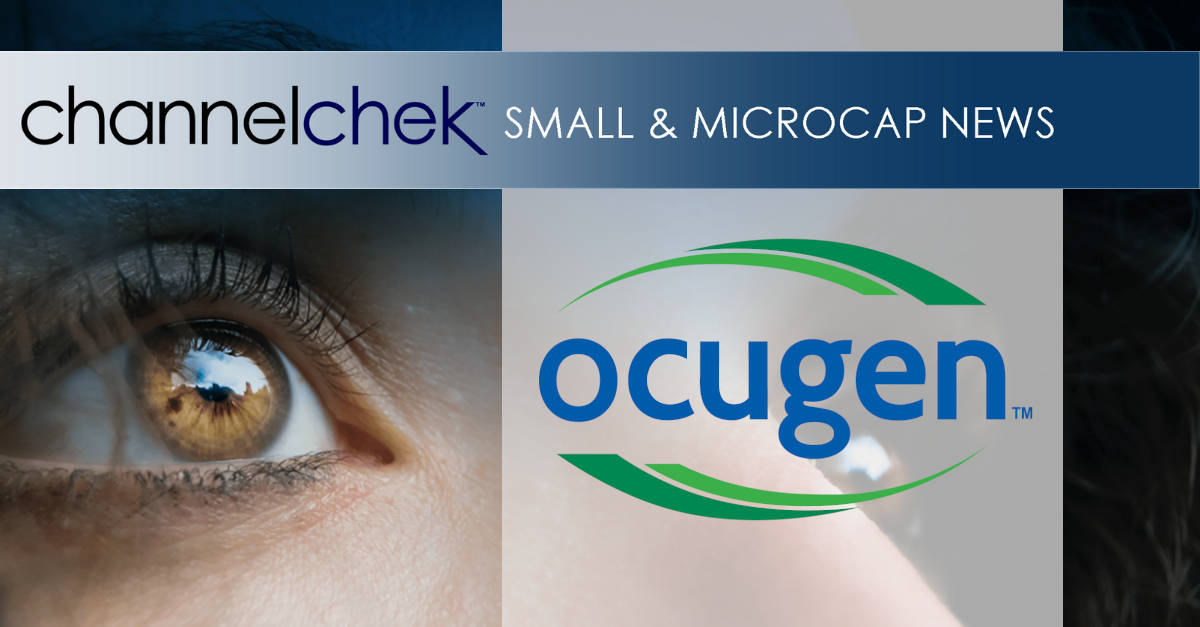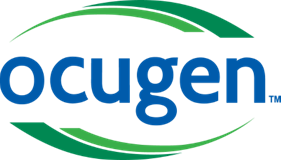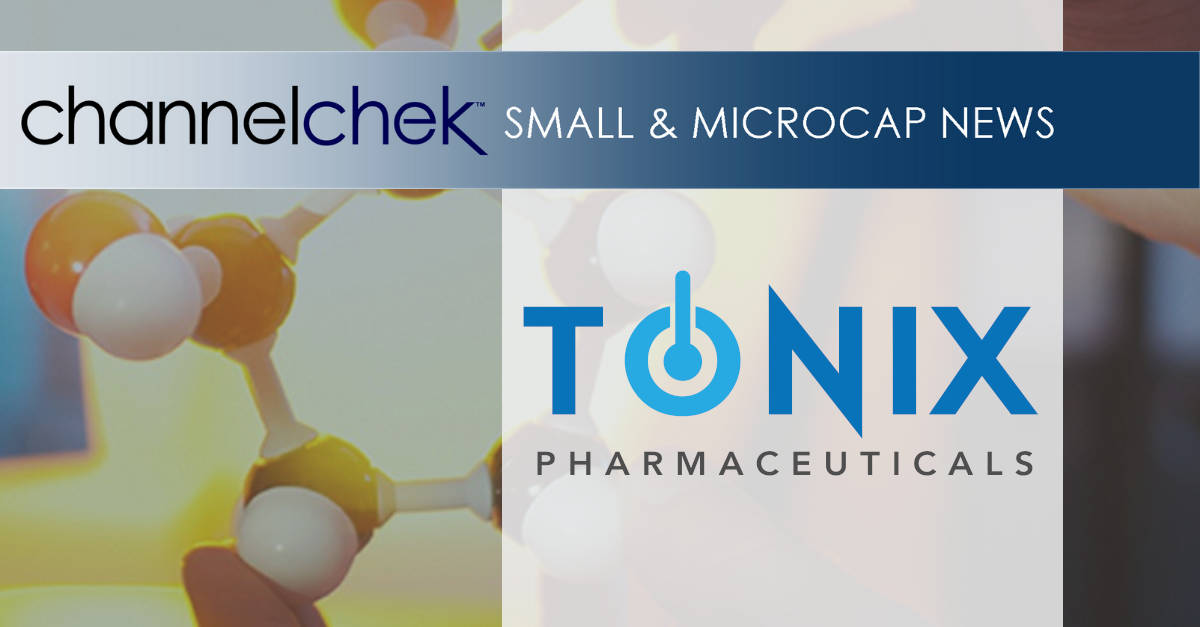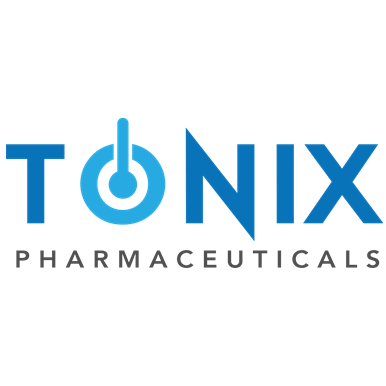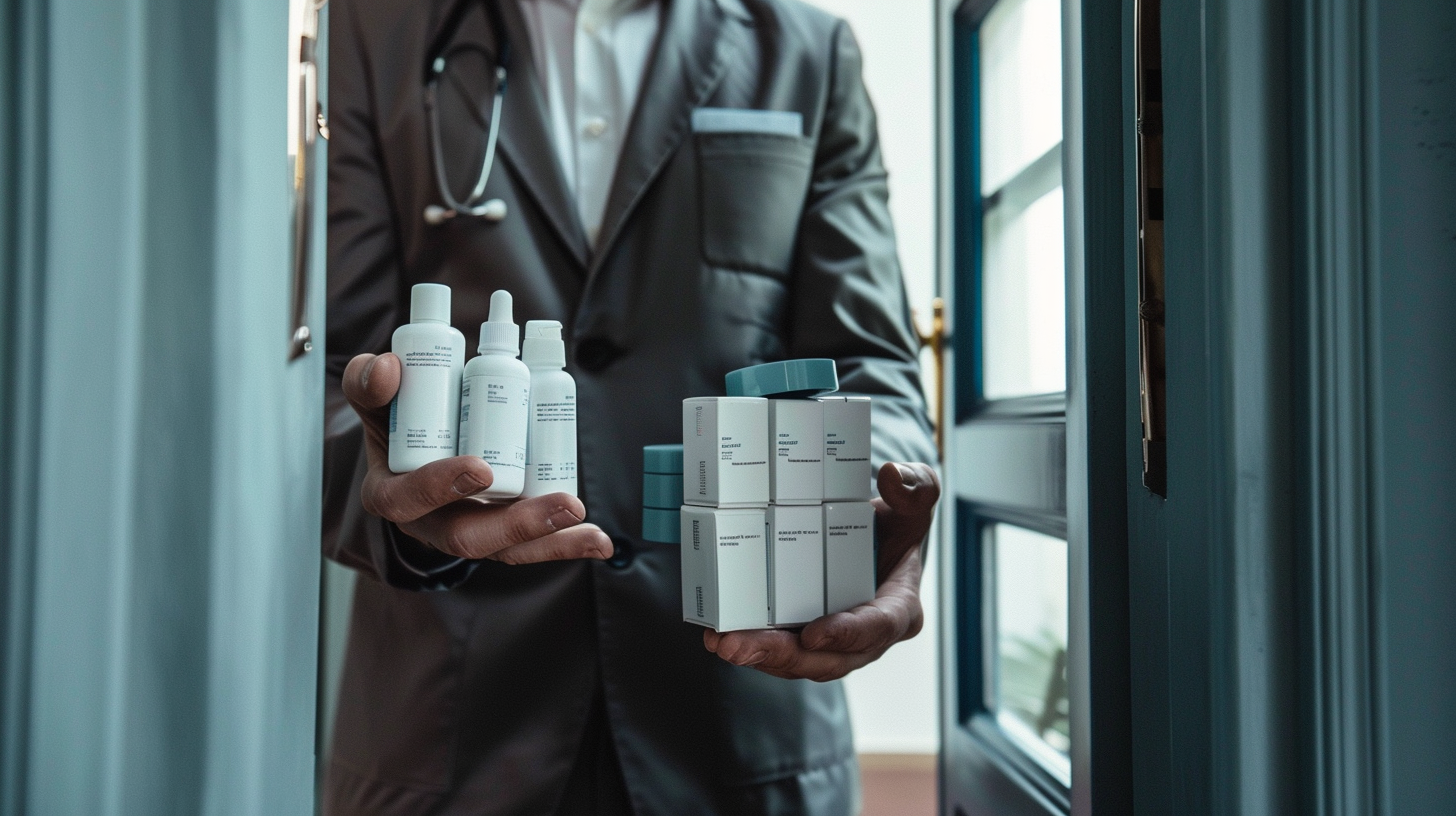Research News and Market Data on TNXP
CHATHAM, N.J., May 21, 2024 (GLOBE NEWSWIRE) — Tonix Pharmaceuticals Holding Corp. (Nasdaq: TNXP) (Tonix or the Company), a fully-integrated biopharmaceutical company with marketed products and a pipeline of development candidates, announced today that EVERSANA® Life Science Services, LLC, a leading provider of commercialization services to the global life sciences industry, completed the initial phase of an assessment of the U.S market opportunity for TonmyaTM (also known as TNX-102 SL, cyclobenzaprine HCl sublingual tablets), a potential new first line therapy for the management of fibromyalgia. Tonix previously announced that EVERSANA was selected to support the launch strategy and commercial planning of Tonmya. Specifically, EVERSANA is working with Tonix to assess the fibromyalgia landscape and help plan an efficient go-to-market (GTM) strategy.
“The primary research and analysis conducted by EVERSANA provides valuable insights and informs the vision for the commercialization of Tonmya,” said Seth Lederman, M.D., Chief Executive Officer of Tonix Pharmaceuticals. “We are excited to refine our business strategy for the anticipated launch of Tonmya in 2025. It has been approximately fifteen years since patients suffering with fibromyalgia have been provided a new therapeutic option. The market research conducted by EVERSANA with physicians indicates a continued high unmet need, with the need ranked > 4.0 on a 5-point scale.”
Dr. Lederman continued, “We were surprised to learn that opioids dominate the fibromyalgia prescription market, despite the well-known risks of dependency. Opioids are prescribed to more patients following fibromyalgia diagnosis than all the FDA-approved fibromyalgia drugs combined. If approved, we believe that Tonmya can provide a non-opioid, centrally-acting solution for fibromyalgia patients. This is corroborated by EVERSANA’s primary market research in which physicians indicated median interest of 4.0 on a 5-point scale and intended use of Tomya in 40% of their fibromyalgia patients, upon approval.1 We look forward to submitting the NDA for Tonmya in the second half of this year and expect an FDA decision on approval in 2025.”
EVERSANA’s analysis of the market size was based on medical claims databases and epidemiological studies on prevalence and diagnosis2. Primary research with physicians was conducted to test the potential adoption of Tonmya based on its activity and tolerability.
Key findings from claims data analyses2:
- ~2.7 million adults in the U.S. currently diagnosed and treated for fibromyalgia.
- ~90 percent of patients diagnosed with fibromyalgia are female.
- Percentage of fibromyalgia patients who were prescribed certain drugs3:
- FDA-approved fibromyalgia drug prescriptions:
- Duloxetine (generic Cymbalta®): 23%, pregabalin (generic Lyrica®): 13%, and Savella® (milnacipran): 1%
- Off-label drug prescriptions:
- Gabapentin: 26%, hydroxycodone: 20%, cyclobenzaprine: 18%, oxycodone: 19%, tramadol: 13%, meloxicam: 12%, and amitriptyline: 6%
- Off-label opioids prescriptions:
- Hydroxycodone: 20%, oxycodone: 19%, and tramadol: 13%
- Targeted prescriber strategy for launch.
- High prescribers are rheumatologists, pain medicine specialists, primary care physicians, neurologists, and psychiatrists.
- ~50 percent of diagnosed fibromyalgia patients are covered by Medicare.
- Medicare population stands to benefit from a decrease in out-of-pocket prescription drug liability to $2,000 per year when the changes from the Inflation Reduction Act are enacted in 2025.
Key findings from primary physician research4:
- High level of dissatisfaction with currently prescribed drugs.
- Physicians interviewed estimate that 85% of their patients fail first-line therapy due to efficacy and tolerability issues and 79% of their patients are on multiple therapies.
- Prescribers indicate high unmet need in fibromyalgia, ranked >4.0 on a 5-point scale.
- High level of interest in Tonmya from physicians interviewed as a potential new treatment option based on favorable activity and tolerability profile observed in Tonmya fibromyalgia clinical studies.
- Median interest in Tonmya of 4 on a 5-point scale.
- Physicians indicated intended use of Tonmya in 40% of their fibromyalgia patients.1
Tonmya is a centrally acting, non-opioid medication. As previously announced, Tonix’s second statistically significant Phase 3 study, RESILIENT, met its pre-specified primary endpoint, significantly reducing daily pain compared to placebo (p=0.00005) in participants with fibromyalgia. Statistically significant and clinically meaningful results (p=0.001 or better) were also seen in all key secondary endpoints related to improving sleep quality, reducing fatigue, and improving overall fibromyalgia symptoms and function.
Tonix plans to submit an NDA to the U.S. Food and Drug Administration (FDA) in the second half of 2024 for Tonmya for the management of fibromyalgia and has scheduled a Type B pre-NDA meeting with FDA for the second quarter of 2024.
1 40% was the median preference share among physicians interviewed, assuming no market access barriers.
2 EVERSANA analysis of claims database, May 2024; commissioned by Tonix
3Note: the total number of patients is greater than 100% because of switching between medications and polypharmacy.
4 EVERSANA primary physician research, May 2024; commissioned by Tonix
About Tonmya* (also known as TNX-102 SL)
Tonmya is a centrally acting, non-opioid, non-addictive, bedtime medication. The tablet is a patented sublingual formulation of cyclobenzaprine hydrochloride developed for the management of fibromyalgia. In December 2023, the company announced highly statistically significant and clinically meaningful topline results in RESILIENT, a second positive Phase 3 clinical trial of Tonmya for the management of fibromyalgia. In the study, Tonmya met its pre-specified primary endpoint, significantly reducing daily pain compared to placebo (p=0.00005) in participants with fibromyalgia. Statistically significant and clinically meaningful results were also seen in all key secondary endpoints related to improving sleep quality, reducing fatigue and improving overall fibromyalgia symptoms and function. RELIEF, the first positive Phase 3 trial of Tonmya in fibromyalgia, was completed in December 2020. It met its pre-specified primary endpoint of daily pain reduction compared to placebo (p=0.010) and showed activity in key secondary endpoints.
*Tonmya™ is conditionally accepted by the U.S. Food and Drug Administration (FDA) as the tradename for TNX-102 SL for the management of fibromyalgia. Tonmya has not been approved for any indication.
About EVERSANA®
EVERSANA® is a leading independent provider of global services to the life sciences industry. The company’s integrated solutions are rooted in the patient experience and span all stages of the product life cycle to deliver long-term, sustainable value for patients, prescribers, channel partners and payers. The company serves more than 650 organizations, including innovative start-ups and established pharmaceutical companies, to advance life sciences solutions for a healthier world. To learn more about EVERSANA, visit eversana.com or connect through LinkedIn and X.
Tonix Pharmaceuticals Holding Corp.*
Tonix is a fully-integrated biopharmaceutical company focused on developing, licensing and commercializing therapeutics to treat and prevent human disease and alleviate suffering. Tonix’s development portfolio is focused on central nervous system (CNS) disorders. Tonix’s priority is to submit a New Drug Application (NDA) to the FDA in the second half of 2024 for Tonmya, a product candidate for which two positive Phase 3 studies have been completed for the management of fibromyalgia. TNX-102 SL is also being developed to treat acute stress reaction as well as fibromyalgia-type Long COVID. Tonix’s CNS portfolio includes TNX-1300 (cocaine esterase) a biologic designed to treat cocaine intoxication with Breakthrough Therapy designation. Tonix’s immunology development portfolio consists of biologics to address organ transplant rejection, autoimmunity and cancer, including TNX-1500, which is a humanized monoclonal antibody targeting CD40-ligand (CD40L or CD154) being developed for the prevention of allograft rejection and for the treatment of autoimmune diseases. Tonix also has product candidates in development in the areas of rare disease and infectious disease. Tonix Medicines, our commercial subsidiary, markets Zembrace® SymTouch® (sumatriptan injection) 3 mg and Tosymra® (sumatriptan nasal spray) 10 mg for the treatment of acute migraine with or without aura in adults.
*Tonix’s product development candidates are investigational new drugs or biologics and have not been approved for any indication.
Zembrace SymTouch and Tosymra are registered trademarks of Tonix Medicines. All other marks are property of their respective owners.
This press release and further information about Tonix can be found at www.tonixpharma.com.
Forward-Looking Statements
Certain statements in this press release are forward-looking within the meaning of the Private Securities Litigation Reform Act of 1995. These statements may be identified by the use of forward-looking words such as “anticipate,” “believe,” “forecast,” “estimate,” “expect,” and “intend,” among others. These forward-looking statements are based on Tonix’s current expectations and actual results could differ materially. There are a number of factors that could cause actual events to differ materially from those indicated by such forward-looking statements. These factors include, but are not limited to, risks related to the failure to obtain FDA clearances or approvals and noncompliance with FDA regulations; risks related to the failure to successfully commercialize any of our products; risks related to the timing and progress of clinical development of our product candidates; our need for additional financing; uncertainties of patent protection and litigation; uncertainties of government or third party payor reimbursement; limited research and development efforts and dependence upon third parties; and substantial competition. As with any pharmaceutical under development, there are significant risks in the development, regulatory approval and commercialization of new products. Tonix does not undertake an obligation to update or revise any forward-looking statement. Investors should read the risk factors set forth in the Annual Report on Form 10-K for the year ended December 31, 2023, as filed with the Securities and Exchange Commission (the “SEC”) on April 1, 2024, and periodic reports filed with the SEC on or after the date thereof. All of Tonix’s forward-looking statements are expressly qualified by all such risk factors and other cautionary statements. The information set forth herein speaks only as of the date thereof.
Investor Contact
Jessica Morris
Tonix Pharmaceuticals
investor.relations@tonixpharma.com
(862) 904-8182
Peter Vozzo
ICR Westwicke
peter.vozzo@westwicke.com
(443) 213-0505
Media Contact
Katie Dodge
LaVoieHealthScience
kdodge@lavoiehealthscience.com
(978) 360-3151
Matt Braun
EVERSANA
Matt.braun@eversana.com
Source: Tonix Pharmaceuticals Holding Corp.
Released May 21, 2024

